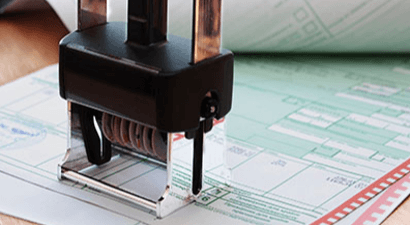Proposed Changes to the Customs Duty Deferment Scheme, what is happening now?
Summary
On 6 February 2015, the South African Revenue Service (SARS) published a communication proposing that:
- a fixed deferment period of one calendar month (except for the month of March) should apply to all deferment account holders and that payment of the deferment account should be due on or before the 7th of the following month; and
- inviting all affected parties to submit comments on the proposal on or before 27 February 2015 (subsequently extended to 9 March 2015).
The proposed changes are SARS’ attempt at achieving comparable fiscal neutrality through amending the deferment period to align it with the VAT period.
Business is concerned about the impact that changing the deferment period will have on cash flow. For customs brokers, for example, the payment date for SARS would now coincide with all other vendor payments, increasing cash flow requirments at month end. Also, the ability to allow customers a few extra days to settle accounts becomes greatly diminished. There are also questions around the status of approved deferment applications when / if SARS decides to implement the proposed changes.
SARS has postponed the implementation of the proposed changes for the time being.
The problem
The deferment period does not align with the VAT period:
In terms of section 39(1) of the Customs and Excise Act, 1964, “the Commissioner of SARS may allow the deferment of payment of customs duties subject to certain conditions and for such periods as he may determine. This deferment arrangement equally applies to the VAT levied upon importation in terms of s 13(6) of the Value Added Tax Act, 1991.”
Currently:
- the payment of customs duty and VAT may be deferred for a period of up to 30 days;
- at the end of the 30 day period the deferment holder is allowed a further seven days to pay all the amounts deferred during the 30 day period;
- the deferment holder can select the deferment period, which can be from the first to the twenty-eighth of each month;
- if the deferment limit in any deferment period is reached, the deferment holder will not be able to defer any more customs duty and or VAT for the remainder of that period; and
- security in respect of the approved deferment limit is required.Te amount of the security depends on the risk profile of the deferment holder.
In terms of the VAT input tax deduction on importation of goods:
- South Africa uses the subtractive method to calculate the VAT liability;
- the calculation takes into account all output tax and input tax that occurred in a particular tax period;
- generally, the issue date of an invoice or payment will determine the tax period in which the output tax or input tax must be allocated;
- in the case of an input tax deduction arising from VAT levied upon importation, such deduction must be allocated to a tax period corresponding to the date the VAT is paid to SARS; and
- the deduction of input tax must be supported by documentation which must be held at the time a return in respect of that tax period is submitted to the tax administration.
Following previous industry comments and consultations, sections 16(3)(a)(iii) and 16(3)(b)(ii) of the VAT Act were amended to allow the input tax deduction to be made in respect of the tax period when the Customs Release Notification was issued. The documentary requirements under section 16(2)(d) took effect on 1 April 2015.
SARS proposed solution
- A fixed deferment period of one calendar month apply to all deferment account holders;
- payment to SARS of the deferment account will be due on or before the 7th of the following month; and
- vendors that have imported goods may deduct the input tax which is attributable to the tax period during which the goods were released in the terms of the Customs and Excise Act.
The customs team at Shepstone and Wylie will keep you updated as to any and all changes in this regard.





